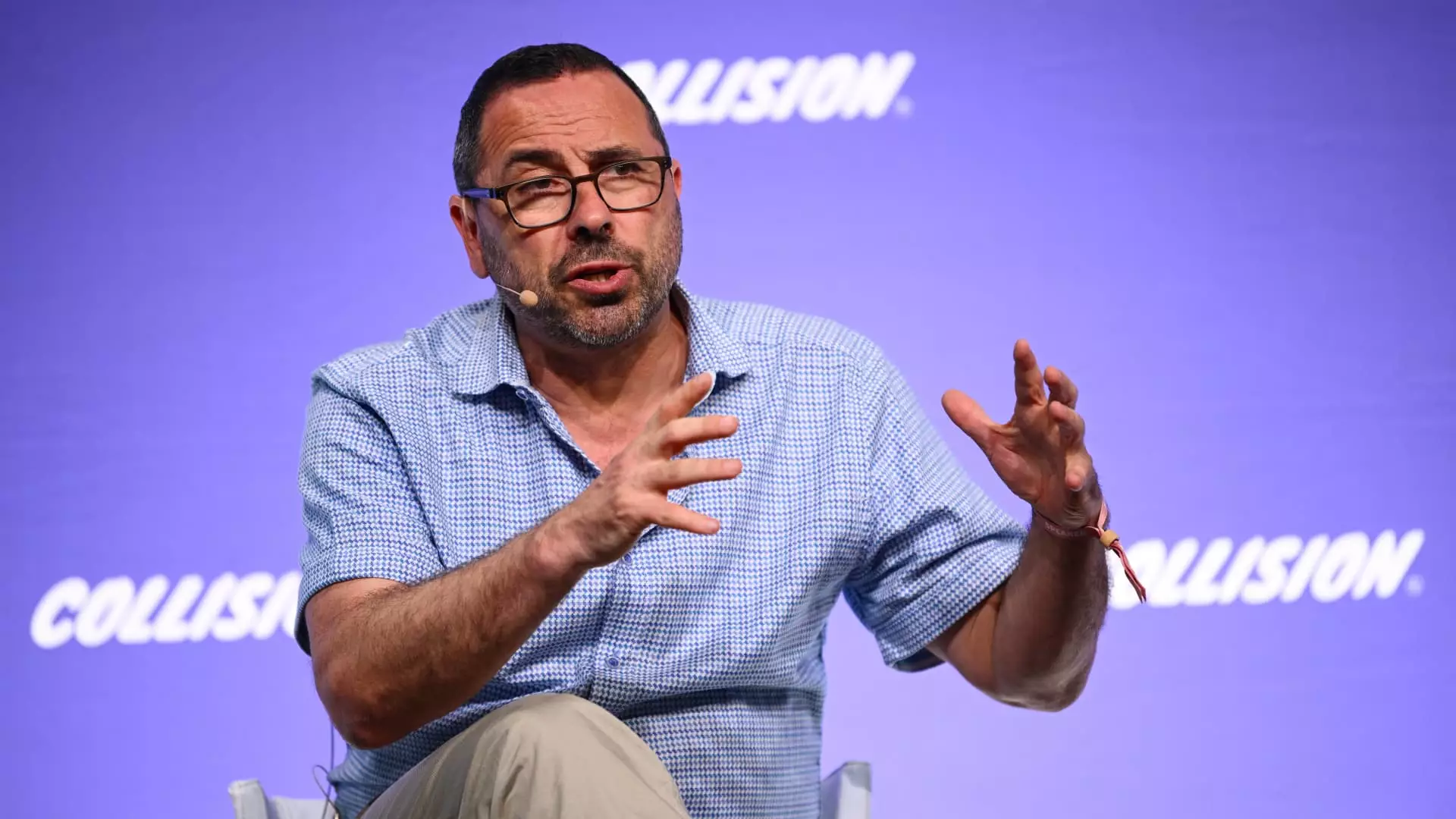As the tech landscape evolves, the spotlight has increasingly turned toward companies championing artificial intelligence (AI) innovation. One such company, Cerebras Systems, seeks to distinguish itself amidst a challenging environment, aiming to become the first major venture-backed tech firm to go public in the U.S. since April. Cerebras endeavors to leverage the soaring interest from investors in AI infrastructure, particularly spurred by Nvidia’s impressive valuation of $3.3 trillion. Despite the bright outlook associated with its technology, the company faces considerable hurdles that could hinder its ambitions, especially given its heavy reliance on a single, Middle Eastern client.
Founded in 2016 and headquartered in Sunnyvale, California, Cerebras swiftly made waves in the tech world by introducing its first processor in 2019. The company touts its chip as being faster and more efficient than Nvidia’s renowned graphics processing unit (GPU), essential for training expansive language models. The past year saw sales surge, with revenue more than tripling to $78.7 million. In a promising sign for 2024, Cerebras reported a revenue climb to $136.4 million in the first half of the year, forecasting even greater financial prosperity, spurred by signed agreements potentially worth a staggering $1.43 billion.
Nevertheless, Cerebras’ reliance on a singular client, G42—a company based in Abu Dhabi, United Arab Emirates—raises significant concerns. G42’s investment has so far constituted a whopping 87% of Cerebras’ revenue for the early part of 2024. Beyond being a major customer, G42’s stakes in Cerebras and its alignment with Microsoft add layers of complexity to their relationship, particularly as Cerebras seeks governmental approval for G42 to increase its investment.
The concentration of revenue from a single client is emblematic of a deeper issue that plagues many startups: dependency on limited sources of income. Such a model may yield substantial short-term gains but could pose existential threats if the primary customer withdraws. Cerebras has outlined plans to diversify its client base by targeting sectors such as healthcare and biotechnology. However, the absence of listed customers beyond G42 in its IPO prospectus does little to instill confidence in potential investors.
Moreover, the relationship with G42 is fraught with geopolitical intricacies that could raise eyebrows among American regulators. Lawmakers have scrutinized G42 due to its historical ties to China, triggering apprehension about its potential influence over U.S. technology firms. Even if Cerebras secures the necessary clearances, it still confronts significant investor skepticism stemming from these concerns.
Market Sentiment and Institutional Support
The atmosphere surrounding Cerebras’ anticipated IPO is also beleaguered by a lingering slump in technology stock valuations. Since the end of 2021, the market for tech IPOs has dwindled, leading to a cautious sentiment among major investment banks. Notably absent from Cerebras’ public offering efforts are institutions like Goldman Sachs, Morgan Stanley, and JPMorgan, typically pivotal in the success of tech IPOs. Instead, the company has turned to Citigroup and Barclays—neither of which has the same cachet as those three.
The road ahead is undeniably challenging; however, interest in AI infrastructure remains robust. As Nvidia captures approximately 95% of the AI training market according to Mizuho Securities, and given the overall market fervor, Cerebras may still find room for maneuver in an otherwise lukewarm IPO landscape. The enthusiasm for AI chips and the company’s innovative technology could draw interest even amid caution around its financial structure.
Leadership can often dictate the course of a firm, and Cerebras’ CEO Andrew Feldman’s past—including a guilty plea concerning accounting control issues—adds an intriguing layer of complexity to its IPO narrative. With investors increasingly vigilant regarding corporate governance, concerns about Feldman could yield skepticism regarding Cerebras’ operations.
Despite the red flags, some retail investors see a silver lining. Enthusiasts like Jim Fitch, a retired homebuilder, express optimism about the company’s potential for future growth, especially with its advanced WSE-3 chip, purported to be the most powerful AI processor globally.
In sum, Cerebras is navigating a multifaceted web of challenges—ranging from single-client dependency and regulatory scrutiny to a cautious investment environment. Yet, the unrelenting drive toward AI innovation could serve as a beacon guiding its IPO dreams. Time will reveal whether Cerebras can transcend these obstacles and make its mark in the investor-dominated arena of AI technology.


Leave a Reply